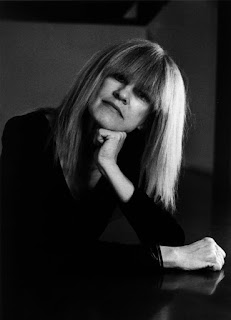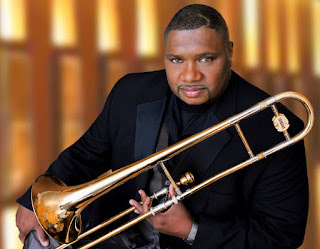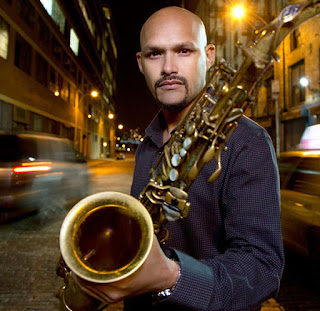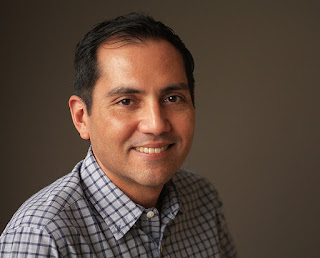Visionary vocalist/songwriter Esperanza Spalding and renowned pianist/composer Fred Hersch announce a 5-song duo EP to benefit musicians impacted by the COVID-19 pandemic
Released to raise funds for the Jazz Foundation of America, Live at the Village Vanguard will be available exclusively at Bandcamp ONLY throughout the month of June
The COVID-19 pandemic is having a devastating effect on the jazz community, leaving countless musicians to face an uncertain future. Visionary vocalist, bassist and songwriter Esperanza Spalding and iconic pianist/ composer Fred Hersch have committed to do their part to help fellow musicians in need with the limited release of Esperanza Spalding & Fred Hersch: Live at the Village Vanguard - Rough Mix EP, a five-song EP captured during the duo’s 2018 run at the iconic New York City nightclub. The EP is a live rough mix with no edits.
The EP will be offered exclusively for download through Bandcamp, with all proceeds benefitting the Jazz Foundation of America and the organization’s efforts to assist members of the jazz community impacted by this ongoing crisis. Released on May 29, the scintillating performance will be available only through the month of June for a minimum of $17, with additional donations encouraged on a pay-what-you-wish basis. Purchase the album here: https://
“All of my musician friends are in the same boat,” Hersch laments. “People who rely on gigs to make ends meet have seen entire tours cancelled. What opportunities may come – and when – remains a huge question mark.”
Besides raising much-needed funds for a vital cause, Live at the Village Vanguard provides a rare opportunity for listeners to enjoy this singular and thrilling collaboration. Spalding and Hersch have convened for only a handful of NYC performances since their first meeting during Hersch’s annual duo series at the Jazz Standard in 2013. In that limited time the pair has developed a wholly unique approach, not only in the annals of piano-voice duets but in their own already distinctive practices.
“This recording feels like you’ve got the best seat in the house for a very live experience,” Hersch says. “You can really feel the energy of the room, of the audience, and of our interplay, and I think it’ll make people feel really good to hear it.”
“I think there’s a lot of joy and beauty in this music that Fred and I made,” adds Spalding. “Beyond collecting money for musicians in need, sharing the beauty in our hearts can have a healing effect as well.”
The five pieces included on Live at the Village Vanguard span a vast spectrum of repertoire, from original compositions to a Brazilian classic to familiar standards offered with a stunningly fresh perspective. A determined original in her own music, Spalding rarely sings standards, and her approach here is unique to her partnership with Hersch. Her improvisation on the Gershwins’ “But Not For Me” becomes a witty, poetic extemporization on the lyric itself, examining the changes in language represented by the original’s sometimes archaic terminology. Neal Hefti and Bobby Troup’s chauvinistic ditty “Girl Talk” comes under barbed scrutiny from not only a feminist but also an eco-conscious perspective.
Hersch’s “Dream of Monk” has been a staple of the duo’s sets since the beginning. With lyrics penned by the pianist himself, the tune is a dedication to one of Hersch’s most indelible influences. “Some Other Time” is a Sammy Cahn/Jule Styne song, less well known than the Leonard Bernstein classic of the same name but a favorite of Hersch, who weaves an elegant and vivid tapestry during his mesmerizing solo. The set closes with Egberto Gismonti’s “Loro,” launched by Spalding’s unconventional scatting, which she eventually uses to engage in a nimble dance with Hersch’s jaunty piano.
“Playing with Fred feels like we’re in a sandbox,” Spalding says. “He takes his devotion to the music as serious as life and death, but once we start playing, it’s just fun. I like to live on the edge in my music, but I find myself trying things that I usually wouldn’t when I play with him, finding new spaces to explore in the realm of improvised lyrics.”
“I don’t think anybody’s heard Esperanza sing like this,” Hersch says, returning the compliments. “She’s fearless, and is one of the smartest people I know. She’s got a huge reach in her intellectual knowledge and is a big thinker in her projects and in her outlook.”
This particular music, recorded October 19-21, 2018, has already made a restorative impact on the two dauntless artists who created it. Though it’s hard to believe given the buoyant spirits and playful interaction of the performances, both Spalding and Hersch were working through pain that weekend. Although the stint ended on a celebratory note with the occasion of Hersch’s 63rd birthday, he was also scheduled to enter the hospital the very next day for hip replacement surgery.
“I was in a lot of pain and walking with a crutch,” he recalls. “Just getting down the famous stairs to the Vanguard was an ordeal.”
Spalding, meanwhile, was struggling with family issues while juggling an intense schedule that included writing an opera with the legendary Wayne Shorter and beginning a teaching position at Harvard University. “I was going through a very difficult time in my life,” she admits. “I was miserable every day when I got to the Vanguard, so I had to decide to plug into the capacity for this music to heal. I wanted to emanate something positive even though I was feeling so horrible. Neither of us were feeling well in our lives outside of the music, so the stage of the Vanguard became an alchemizing place for both of us, and I think you can feel that in the music.”
Esperanza Spalding
Four-time Grammy Award-winning visionary Esperanza Spalding aims to ignite and portray various hues of vital human energies through composition, singing, bass playing and live performance. A lover of all music, especially improvisation-based musics emerging from black American culture, Spalding’s musical aesthetic is prismatic. With projects like Radio Music Society, Chamber Music Society, Emily’s D+ Evolution and her latest album, 12 Little Spells, she has inventively combined and reimagined influences from jazz, funk, rock, musical theater and beyond. She has taught at Berklee College of Music and Harvard University, and is in the process of writing an opera in collaboration with Wayne Shorter.
Fred Hersch
A select member of jazz’s piano pantheon, Fred Hersch is an influential creative force who has shaped the music’s course over more than three decades. A fifteen-time Grammy nominee, Hersch has long set the standard for expressive interpretation and inventive creativity. A revered improviser, composer, educator, bandleader, collaborator and recording artist, Hersch has been proclaimed “the most arrestingly innovative pianist in jazz over the last decade” by Vanity Fair, “an elegant force of musical invention” by The L.A. Times, and “a living legend” by The New Yorker. For decades Hersch has been firmly entrenched as one of the most acclaimed and captivating pianists in modern jazz, whether through his exquisite solo performances, as the leader of one of jazz’s era-defining trios, or in eloquent dialogue with his deeply attuned duo partners. His brilliant 2017 memoir, Good Things Happen Slowly, was named one of 2017’s Five Best Memoirs by the Washington Post and The New York Times.
Esperanza Spalding & Fred Hersch:
Live at the Village Vanguard – Rough Mix EP
Live at the Village Vanguard – Rough Mix EP
Recorded Oct. 19-21, 2018
Release date May 29, 2020
Available exclusively for download via Bandcamp only through June 2020













































